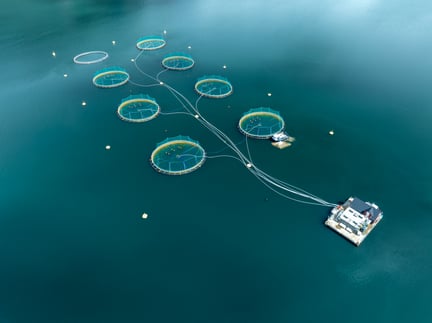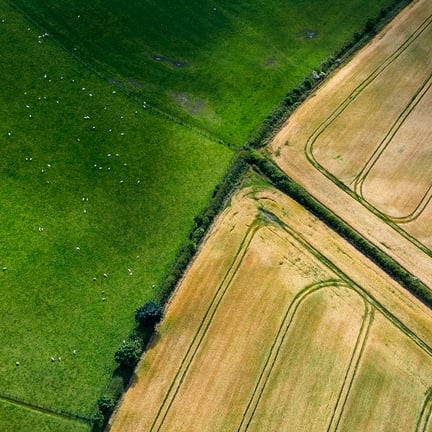Vincent Doumeizel, our voice on the Food and Beverage sector and a blockchain expert, will be presenting on improving supply chain efficiency with technology innovation
LRQA is taking centre stage at three upcoming conferences in Spain, France and Netherlands this June. These events are set to bring together industry leaders and international brands to embrace new and cutting edge technologies.
Vincent Doumeizel, Vice President for Food, Beverage & Sustainability

37th International Conference on Ocean, Offshore & Arctic Engineering, Madrid, Spain, 17-22 June 2018
Offshore Fish Farm
Abstract
The development of the offshore hydrocarbons industry has created a pool of unrivalled expertise for the deployment of projects ranging in complexity from the simple to the incredibly complex e.g. Shell Prelude. The Aquaculture industry now looks to this expertise to realise its potential. The world population is predicted to be 9 billion by 2050 and aquaculture is seen as one of the key means of providing protein to a population of this size in a sustainable way. Norwegian aspirations to grow production fivefold from 1MT to 5MT by 2050 support this view. The achievability of this is demonstrated by the industry’s ability to exceed wild fish captures which have remained static. However to realise this ambition requires an expanded approach, hence the look towards offshore technologies. It has now been recognised that the same offshore environment represents a sustainable resource for aquaculture. Industry aspirations for deeper and clearer offshore waters will face many of the same challenges that the hydrocarbons industry has faced.
This topic is at the convergence of LRQA's 300 years’ experience in maritime & offshore industry and the new LRQA Group & LRQA Foundation focus on food supply chain resilience
SecurFood, Congress & Business Convention on food safety and traceability, Rennes, France, 19-20 June 2018
Improving supply chain efficiency with new technology
Abstract
This presentation aims to explore how the latest technology innovations (Blockchains, Big Data, New Genom Sequencing) will revolutionise the agriculture industry, and increasing supply chain transparency with real-time and remote audit tools.
It will also detail how the LRQA Foundation and the LRQA Group to support this revolution through disruptive investments and visionary positioning in the food Business.
Blockchain Expo Europe 2018, Unlocking the Internet of Value, Amsterdam, Netherlands, 27-28 June 2018
Blockchains for the Food Supply Chain 2.0 : Hype or Hope?
Abstract
To feed the fast growing population with richer diet and in order to meet the expectations of savvy and more demanding customers, the food supply chain will have to revolutionise its current model and leverage emerging new technologies. Together with the audience, this session will explore how and why blockchains appears to be an appealing solution to improve the food supply chain efficiency by enabling traceability and real time compliance from farm to fork
Doumeizel will also be of the panel speakers in a Blockchain for Enterprise session, with notable thought leaders from Ambrosus Technologies GmbH, World Wide Fund for Nature (WWF) and Global Food Integrity, as they discuss “Food you trust – The role of Blockchain within supply chain tracking” on the first day of the expo.
“The LRQA Group as well as LRQA Foundation are focused on new technologies and innovation to continue to add value to society as well as to the many thousands of clients that we serve worldwide. Blockchain is a key area of focus for us across a wide variety of sectors and we have already several ongoing pilots. Our participation is a testament to our progress and thought leadership within this arena,” said Doumeizel.
Vincent Doumeizel is Vice President for Food, Beverage & Sustainability at LRQA. Following a degree in economics, he worked for the French government in Africa on a number of agriculture projects. In addition to his Group responsibilities, he actively supports the charitable objectives of the LRQA Foundation, notably through the identification & funding of innovative projects to mitigate food insecurity as well as through participation to Advisory Boards in various food universities research projects across Europe.


